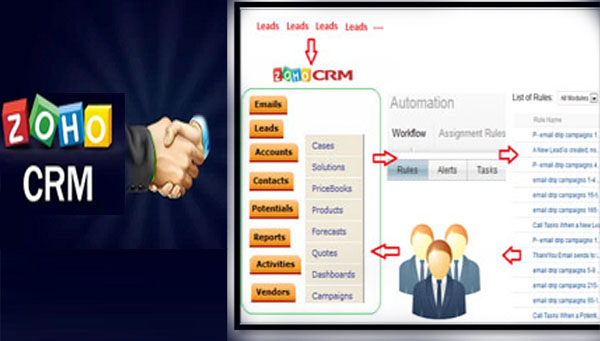Sara Angeles| Businessnewsdaily
For many businesses considering cloud computing, a public cloud where servers are shared by multiple companies fits the bill. For those that need tighter security and more control, however, a private cloud is just what the chief information officer ordered.
Whether an organization needs to limit access to their cloud, is looking to meet compliance standards or requires an extra layer of protection to prevent cyberattacks, private clouds can give that peace of mind.
With the myriad of cloud providers available and the rapid pace at which the industry is changing, it can be a challenge finding the best private cloud provider for your organization.
Below, we’ve compiled four small business-friendly private cloud providers that offer various types of virtual and dedicated private clouds to fit your business needs.
Amazon Virtual Private Cloud
Amazon Virtual Private Cloud (Amazon VPC) is part of the Amazon Web Services (AWS) Cloud. Amazon VPC enables users to launch AWS services in a customizable virtual private cloud network.
Amazon VPC gives users complete control over their private cloud, including the ability to select their own IP address range, create subnets and configure network gateways. Users can also create a hybrid environment, where Web servers can be accessed in a public subnet, but backend systems such as databases and applications are stored in a private subnet. Businesses that have their own data center can also extend it by creating a Hardware Virtual Private Network (VPN), connecting it to Amazon VPC and taking advantage of AWS’ services.
As part of AWS, a pioneer in cloud services and is used by startups, corporations, banking systems and even pharmaceuticals companies, Amazon VPC is one of the most secure private cloud services available. It offers multiple layers of security, such as security groups to set access permissions and network access control lists to regulate inbound and outbound access.
Amazon VPC costs 5 cents per VPN connection-hour and is used in conjunction with Amazon Elastic Compute Cloud (Amazon EC2), Amazon’s flexible cloud service that offers easy scalability and robust functionality.
VMware Private Cloud
As part of the VMware vCloud Suite, VMware’s Private Cloud aims to deliver faster and more agile cloud computing that is scalable to fit your business needs. Using a Web-based, self-service portal, VMware offers a standardized, flexible way to deploy IT resources on demand in one central infrastructure.
VMware offers two types of private clouds: a dedicated cloud that is physically isolated from other cloud infrastructures, and a virtual private cloud that is logically isolated — resides on the same infrastructure as other clouds — with its own fully private networking and resource pools.
What makes VMware stand out is that it has one of the most stringent security measures in the industry, which includes continuous security monitoring and compliance. For instance, with VMware’s trust-zone policies, administrators can control traffic to IT-governed areas of a private cloud; VMware’s configuration management products also feature continuous monitoring to detect potential incidents and failures to maintain security compliance.
VMware pricing varies and is based on licensing, subscription plans and stand-alone products.
Rackspace Private Cloud (Powered by OpenStack)
Need more flexibility? Rackspace, an Infrastructure-as-a-Service (IaaS) provider, offers private cloud solutions that can run anywhere, from your own data center to one of Rackspace’s data centers around the world.
The Rackspace Private Cloud is powered by OpenStack, open-source cloud computing software that frees cloud users from the risks and limits of proprietary software offered by other cloud providers. This open-source software also aims to make the private cloud migration as painless as possible, starting with fast installation and deployment in less than an hour.
Unlike many cloud providers, Rackspace prides themselves on “fanatical support,” with more than 1,400 trained cloud specialists available by phone, chat or email. They also work with clients to understand their cloud needs and find the best and fastest way to design, deploy, operate and troubleshoot their cloud, according to the company. Experienced DevOps teams are also available to run and scale private clouds so users don’t have to worry about the technical aspects of expansion.
Although Rackspace private cloud data centers offer a comprehensive Customer Security Program and security management services — such as vulnerability assessments, compliance services and Distributed Denial of Service (DDoS) mitigation services — Rackspace’s private cloud software is only as secure as where it is deployed. Since it can be run anywhere, data centers should also have the proper security measures to protect your cloud.
Rackspace’s open-source private cloud software is free to use on any data center. Actual cloud usage costs vary based on provider and data center plans.
CloudBees
Is your business running primarily on Java-based applications? CloudBees is a niche Platform-as-a-Service (PaaS) provider designed exclusively for hosting Java-based applications on the cloud. This includes any app running on the Java language and other languages that use or can use a Java runtime (e.g., JavaScript, Scala and Ruby).
CloudBees offers a dedicated cloud infrastructure that is only available to you and does not share resources with other cloud users. This private cloud is completely configurable to accommodate the number and size of servers for your applications and databases. Users can create, manage and deploy as many applications and data they want, as the cloud automatically scales to balance the load within the dedicated pool of servers. Although CloudBees does the initial provisioning of services and manages the platform for users, they also offer a self-service feature for users to add or remove additional resources to fit their immediate needs.
CloudBees’ security features are partially customizable and include a fixed IP, firewall rules, SSL certificates and database configurations.













